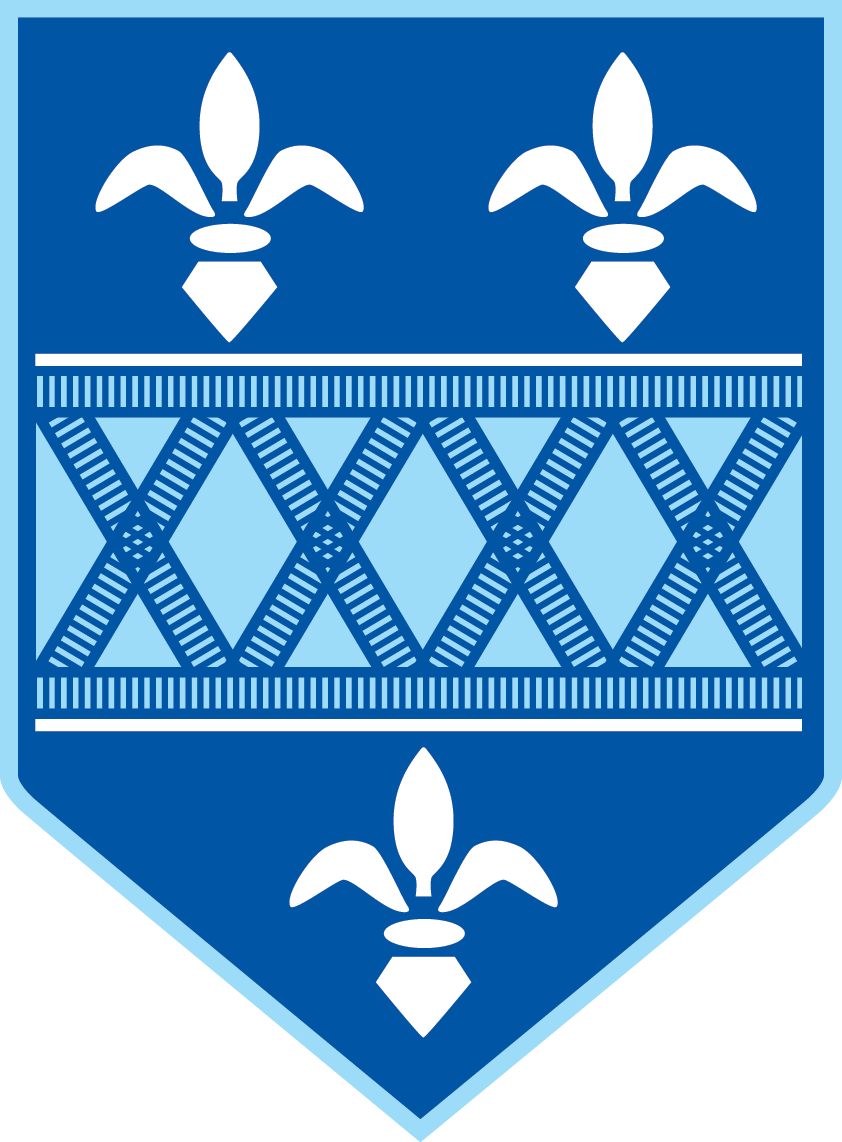Mathematics
Curriculum Vision
At Langley Park School for Girls, our Mathematics team aims to inspire students to discover the beauty and patterns in Mathematics. Maths is all around us, and our curriculum has been developed to enable students to see the uses of the content in their everyday life as well as broadening their appreciation of more theoretical Mathematics and developing their ability to think logically. We believe students deserve a creative and ambitious Mathematics curriculum that sparks their curiosity and prepares them for real-world applications. By focusing on reasoning and problem-solving, we help students build confidence, resilience and independence in their learning. Our goal is to provide a high-quality Mathematics education that fosters a sense of enjoyment and curiosity, making Maths both exciting and meaningful for all our students.
A video introduction to our Mathematics courses in LPGS6 (our co-educational Sixth Form)
Within Key Stage 3 students study the National Curriculum at a level relevant to them. This builds on the achievements and experiences of the primary curriculum and allows pupils to enjoy a smooth transition from primary to secondary school Mathematics. The majority of students spend Year 7 in a Mixed Attainment setting, this allows students time to flourish at Langley before sets are decided. A small group of students are removed from the Mixed Attainment groups to support the development of the fundamentals of their Mathematics. After Year 7, students are placed into ability sets that are consistently revisited to support their long term progress.
The aims of our KS3 Mathematics curriculum are to ensure that all pupils:
-
Become fluent in the fundamentals of mathematics, through varied and frequent practice with increasingly complex problems over time, so that pupils develop conceptual understanding and the ability to recall and apply knowledge rapidly and accurately.
-
Reason mathematically by following a line of enquiry, conjecturing relationships and generalisations, and developing an argument, justification or proof using Mathematical language.
-
Can solve problems by applying their Mathematics to a variety of routine and non-routine problems with increasing sophistication, including breaking down problems into a series of simpler steps and persevering in seeking solutions.
The curriculum is sequenced to ensure that topics are revisited and built upon throughout KS3, enabling students to master maths with confidence. Retrieval practice is also encouraged to support memory and recall within Mathematics from Year 7 and throughout a students' time at LPGS.
Example topics to be covered:
Number
-
Fractions, percentages, conversions and measurements.
Algebra
-
Solving equations, simplifying expressions and deriving formulae.
Geometry and Measures
-
Area, perimeter and volume, angle facts, 2D and 3D shapes.
Statistics
-
Representing and analysing data, probability.
Opportunities to develop mathematical skills beyond the standard curriculum are embraced through participation in national mathematics competitions and challenges, with a number of our students winning awards in the Junior Maths Challenge. Students are assessed throughout Key Stage 3 using both unit and formal assessments, their progress is monitored to ensure that they fulfil their potential.
Textbooks for Year 7 and Year 8
In KS3 we use Pearson's Purposeful Practise books. The book is provided for students to work through in class. At home, students have access to Mathswatch, giving them opportunities to watch videos and practise.
Enrichment
-
Maths challenge, UKMT
-
Maths enrichment opportunities within the enrichment curriculum
-
External speakers
-
Supervised extra help and support sessions
The aims of Maths GCSE are to enable students to:
-
Develop fluent knowledge, skills and understanding of mathematical methods and concepts
-
Acquire, select and apply mathematical techniques to solve problems
-
Reason mathematically, make deductions and inferences, and draw conclusions
-
Comprehend, interpret and communicate mathematical information in a variety of forms appropriate to the information and context.
The grading is 9 – 1 with 9 being the highest attainable grade. The Higher tier covers grades 9 – 3 and the Foundation tier grades 5 – 1. There is an overlap of content in the Higher and Foundation tier enabling final decisions about tier of entry to be made after the trial examinations in Year 11.
The Maths GCSE is a linear course with no controlled assessment or coursework. At the end of Year 11 the students will sit three equally weighted papers each 1½ hours long and worth 80 marks. Paper one will be a non-calculator paper, whilst papers two and three allow calculators. Students are not provided with formulae sheets for these exams.
The Course Structure:
At LPGS we follow a spiralling curriculum in which the key elements of the GCSE curriculum are covered. In each term throughout the GCSE course students will cover progressively more challenging elements of each of:
-
Number
-
Algebra
-
Ratio, proportion and rates of change
-
Geometry and measures
-
Probability
-
Statistics
Throughout the GCSE syllabus, students Unit Check Ins, and assessments are created from Examination questions covering A01,A02 & A03. By the final term of Year 11, students will have gained experience in answering examination questions and papers, developing their confidence in approaching the final exams.
Student Resources:
We follow a spiral curriculum, which encompasses elements of the Pearson scheme of work. Whilst our lessons are not centred around textbooks, should you wish to buy a textbook for students to use at home, we would recommend the following:
Edexcel GCSE (9-1) Mathematics: Foundation Student Book ISBN 9781447980193
Edexcel GCSE (9-1) Mathematics: Higher Student Book ISBN 9781447980209
In addition to the textbooks all students have access to the online version of Maths Watch which has video tutorials of all topics for revision and practise vle.mathswatch.co.uk. Your child will have been given login details for this. To support further with the development and mastery of skills within Mathematics, we would suggest using http://www.mathsgenie.co.uk and corbettmaths.com who have a whole host of examination papers and exam questions by topic available.
The highest achieving Maths students may also sit the AQA Level 2 Certificate in Further Mathematics. This complements and extends the Higher tier GCSE syllabus and can be taught alongside Maths GCSE. It is sat at the end of Year 11 with decisions about entry being made after the trial exams.
The Further Maths course is designed for students who will comfortably achieve grades 8 or 9 at GCSE and it provides an excellent preparation for A level study after Year 11.
Subject Content:
-
Number
-
Algebra
-
Coordinate Geometry in two dimensions
-
Calculus
-
Matrix Transformations
-
Geometry
You may find out more about this qualification and look at specimen assessment materials at https://www.aqa.org.uk/subjects/mathematics/aqa-certificate/mathematics-8365/specification
Assessment:
Two papers are sat at the end of Year 11
Paper 1 Non-Calculator 1 hour 45 minutes 80 marks
Paper 2 Calculator 1 hour 45 minutes 80 marks
Questions: a mix of question styles from short, single mark questions to multi-step problems. The mathematical demand increases as the student progresses through the paper. Grades will be awarded on a scale of 5 – 9.
Course Description:
This course aims to develop the ability to apply mathematical skills and techniques in other subjects and to lay foundations for the further study of mathematics and other disciplines. Pure mathematics will extend your knowledge of algebra and trigonometry and introduce new ideas such as calculus. You will also study applications of mathematics in mechanics and statistics. Mechanics is the study of the motion of objects and the forces acting upon them. In Statistics you will learn how to analyse data and draw conclusions from it using probability and other concepts.
Skills Required:
A good knowledge of all aspects of GCSE mathematics and a genuine enjoyment of mathematics and problem-solving.
Method of assessment:
A-Level Mathematics consists of three externally examined papers:
Paper 1: Pure Mathematics (2 hours) - 100 marks.
Paper 2: Pure Mathematics (2 hours) - 100 marks.
Paper 3a: Statistics (1 hour) - 50 marks.
Paper 3b: Mechanics (1 hour) - 50 marks.
Note: Papers 3a and 3b are sat in the same sitting.
Progression:
Success in mathematics is an indication of the ability to think logically and to deal with abstract generalisations. Mathematics can complement almost any choice of subjects and is looked at favourably in applications for any Higher Education Course. A-Level Mathematics is essential for the study of engineering, physics and mathematics at degree level and is related to, or strongly recommended for, chemistry, medicine, economics, architecture, accountancy, teaching, computing, information technology, philosophy, psychology and other social sciences.
Course Description:
This course leads to two A-Levels. In Year 12, a student will complete a full A-Level in Mathematics and in Year 13, an A-Level in Further Mathematics. It is most suitable, though not exclusively, for students who are interested in pursuing Mathematics or a Mathematics-related degree at university. If you are considering this course you should consult your Mathematics teacher.
Skills Required:
An exceptional knowledge of all aspects of GCSE mathematics and a genuine passion for mathematics and problem-solving.
Method of Assessment:
A-Level Mathematics (examined in May/June of Year 12):
3 externally examined papers:
-
Pure 1 - worth 100 marks.
-
Pure 2 - worth 100 marks.
-
Applied (Statistics & Mechanics) - worth 100 marks.
A-Level Further Mathematics (examined in May/June of Year 13)
4 externally examined papers:
-
Core Pure 1 - worth 75 marks.
-
Core Pure 2 - worth 75 marks.
-
Option 1 - worth 75 marks.
-
Option 2 - worth 75 marks.
Options: Further Statistics, Further Mechanics, Decision and Further Pure.
Progression:
Success in Mathematics is an indication of the ability to think logically and to deal with abstract generalisations. Mathematics can complement almost any choice of subjects and is looked at favourably in applications for any Higher Education course. It is essential for the study of Mathematics, Engineering and Physics at degree level and recommended for Chemistry, Medicine, Economics, Architecture, Accountancy, Computing, Information Technology, Philosophy, Psychology and other social sciences. Further Mathematics is particularly desirable for Mathematics and Engineering courses as well as many other STEM subjects.

